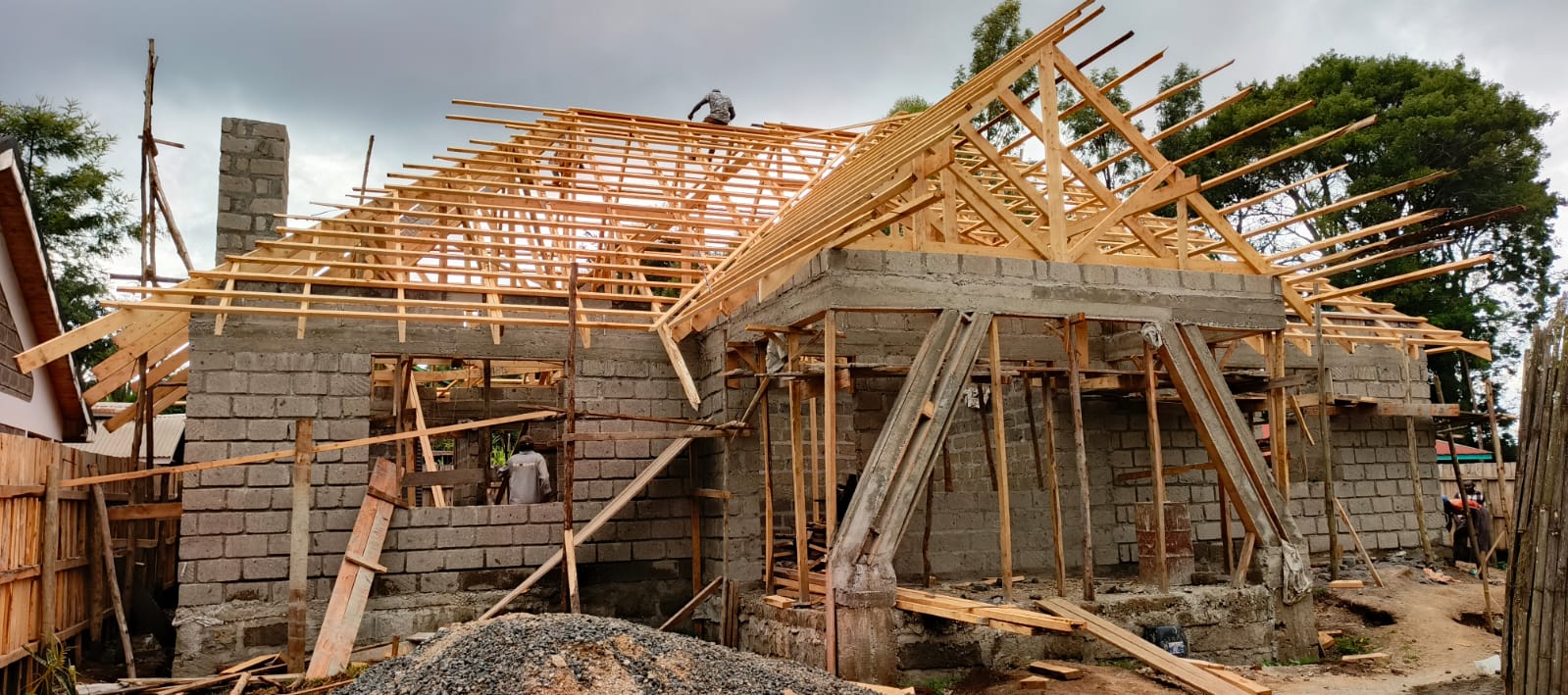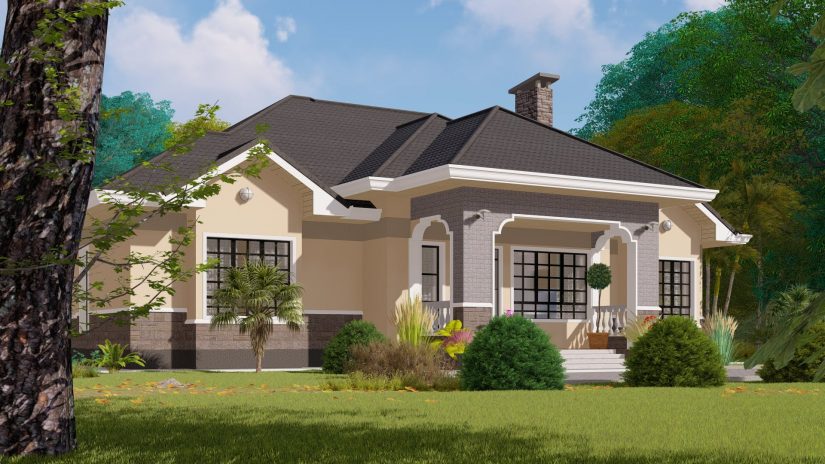By Benard Onyango
Benard is the CEO and founder of Marble Engineering, the leading design and build company for residential and commercial construction in Kenya.
Building a home in Kenya is an exciting dream, but for many, it turns into a never-ending nightmare. Across the country, thousands of unfinished homes remain abandoned due to poor planning, unexpected costs, unreliable fundis, and legal troubles. Many homeowners start strong, only to find themselves stuck—out of money, overwhelmed, or caught up in disputes.
If you want to build your home successfully without delays or financial ruin, you need a well-planned approach. In this guide, we’ll explore why so many Kenyans struggle to finish their homes and, most importantly, how to avoid these traps.
1. Poor Budgeting
Many Kenyans start construction without fully understanding the cost of building a single family home in Kenya. They assume a rough estimate will be enough, but unexpected expenses—like fluctuating material prices and labor fees—quickly drain their budget.
The cost of a bungalow in Kenya and the cost of a maisonette in Kenya depend on materials, location, and design choices. Without a clear financial plan, many homeowners run out of funds before completing their projects.
How to Avoid This Trap:
- Consult a design and build company in Kenya for a detailed cost breakdown before starting.
- Add at least 20% extra to your budget to cover unexpected expenses.
- Use construction cost calculators or spreadsheets to track expenses.
Read Also: 3-Bedroom House Designs in Kenya: A Comprehensive Guide To Contemporary Living
2. No Clear Construction Plan
Some homeowners jump into construction without a well-defined design and construction plan. They change their minds mid-project, leading to wasted materials, labor inefficiencies, and massive cost overruns.
If you don’t know how to hire a contractor, you may end up working with unqualified fundis who mismanage your project. Poor planning can cause endless delays and leave your home unfinished.
How to Avoid This Trap:
- Work with a design and build company in Kenya to create a step-by-step construction plan.
- Finalize all architectural and structural drawings before breaking ground.
- Research how to hire a contractor with a strong reputation and track record.
3. Land Disputes and Missing NEMA and NCA Certifications Kenya
Many Kenyans buy land without verifying ownership, leading to court cases and construction halts. Others ignore the necessary NEMA and NCA certifications Kenya, only to have their projects stopped by authorities.
Failing to secure proper approvals can result in fines or even demolition orders. Government regulations are strict, and working without proper documentation is a major risk.
How to Avoid This Trap:
- Always conduct a title deed search before buying land.
- Obtain NEMA and NCA certifications Kenya to ensure legal compliance.
- Work with a real estate lawyer to check all documents before starting.
Read Also: 3 Bedroom House Plans in Kenya
4. Unreliable Fundis
A common question among homeowners is: Do Kenyan fundis steal from you? Unfortunately, the answer is often yes. Some fundis inflate material costs, overcharge for labor, or disappear after receiving payments.
Knowing how much to pay Kenyan fundis is crucial to avoid being scammed. The cost of a bungalow in Kenya and the cost of a maisonette in Kenya can quickly rise if you’re not careful with labor expenses.
How to Avoid This Trap:
- Hire a design and build company in Kenya to manage labor and materials.
- Research how much to pay Kenyan fundis based on standard industry rates.
- Make payments in phases instead of giving full amounts upfront.
5. Rising Cost of Materials
Inflation and supply chain issues have significantly increased the cost of building a single family home in Kenya. Prices of cement, steel, and timber fluctuate, making budgeting difficult.
The cost of a bungalow in Kenya may be lower than a maisonette, but both can become expensive if prices keep rising. Without proper planning, you may run out of money mid-way.
How to Avoid This Trap:
- Purchase bulk materials early to lock in prices.
- Choose cost-effective alternatives that maintain quality.
- Work with a design and build company in Kenya to get the best deals.
6. Lack of Construction Supervision Kenya
Some homeowners trust their contractor to handle everything, but without construction supervision Kenya, the project can suffer from delays, poor quality work, and material theft.
If you’re wondering, do Kenyan fundis steal from you?, poor supervision is one of the main reasons why it happens. Unattended sites often lead to mismanaged resources and unaccounted materials.
How to Avoid This Trap:
- Hire a construction supervisor Kenya to oversee daily work.
- Visit your site regularly to monitor progress.
- Keep a detailed record of all material purchases and labor expenses.
Read Also: Embakasi Nairobi: A Comprehensive Guide to Its Culture, Economy, Infrastructure, and Opportunities
7. Over-Ambitious House Designs and the Cost of a Bungalow in Kenya
Some Kenyans plan massive luxurious homes without considering their actual budget. The cost of a bungalow in Kenya ranges from KSh 2 million to KSh 10 million, while the cost of a maisonette in Kenya is much higher.
Unrealistic designs often lead to financial strain, forcing many homeowners to abandon their projects before completion.
How to Avoid This Trap:
- Choose affordable, practical designs.
- Focus on essential rooms first, adding luxury features later.
- Work with a design and build company in Kenya to balance cost and quality.
8. Construction Loans Without a Repayment Plan
Many homeowners take construction loans without a clear repayment strategy. As interest accumulates, they struggle to keep up with payments, leading to stalled projects.
Loans should only be used strategically, not as an unlimited funding source for home building.
How to Avoid This Trap:
- Take a loan only if you have a clear repayment plan.
- Consult a financial expert before borrowing.
- Consider a phased construction approach to manage costs over time.
9. Family and Community Interference
Some homeowners face pressure from family members or friends to expand their house plans, pushing them beyond their budget. Cultural expectations often lead to overspending, leaving projects incomplete.
Ignoring your financial limitations can easily put you in debt and force construction to stop.
How to Avoid This Trap:
- Stick to your original house plan and budget.
- Politely refuse external influences that add unnecessary costs.
- Seek advice only from professional contractors.
Read Also: The Ultimate No.1 Guide to Apartment Plans in Kenya: Designs, Costs, and Trends
10. Lack of a Phased Construction Approach
Many Kenyans try to build everything at once, but this often leads to running out of money mid-way. A phased approach allows for steady progress without financial strain.
Breaking construction into manageable stages ensures that you can complete key sections before expanding further.
How to Avoid This Trap:
- Prioritize essential structures first before adding extras.
- Work with a design and build company in Kenya to plan efficient construction phases.
- Use construction supervision Kenya to manage each stage carefully.
Final Thoughts
Finishing your home in Kenya requires proper planning, reliable contractors, and legal compliance. The cost of building a single family home in Kenya is rising, making smart financial and construction decisions essential.
For expert guidance, Marble Engineering is the leading design and build company in Kenya, offering construction supervision Kenya and cost-effective building solutions. Whether you’re constructing a bungalow or a maisonette, their expertise ensures your home is completed on time and within budget. Contact Marble Engineering today and turn your dream home in Kenya into reality!




One thought on “Why Many Kenyans Struggle to Finish Their Homes – And How to Avoid This Trap”